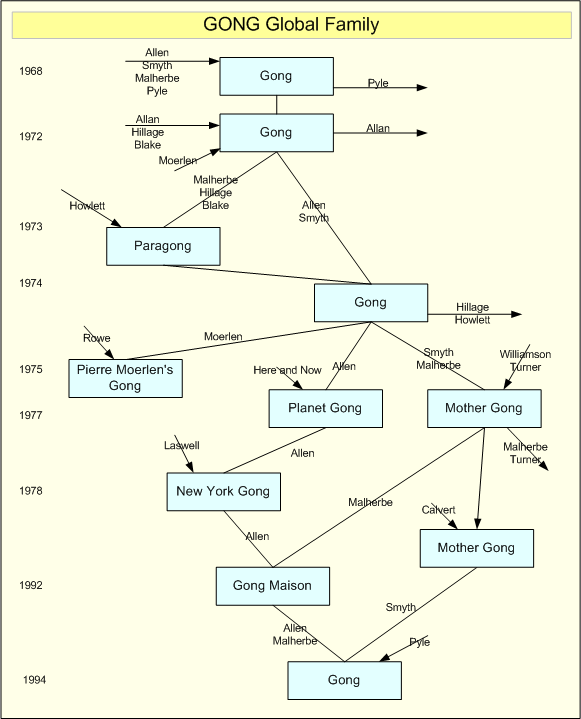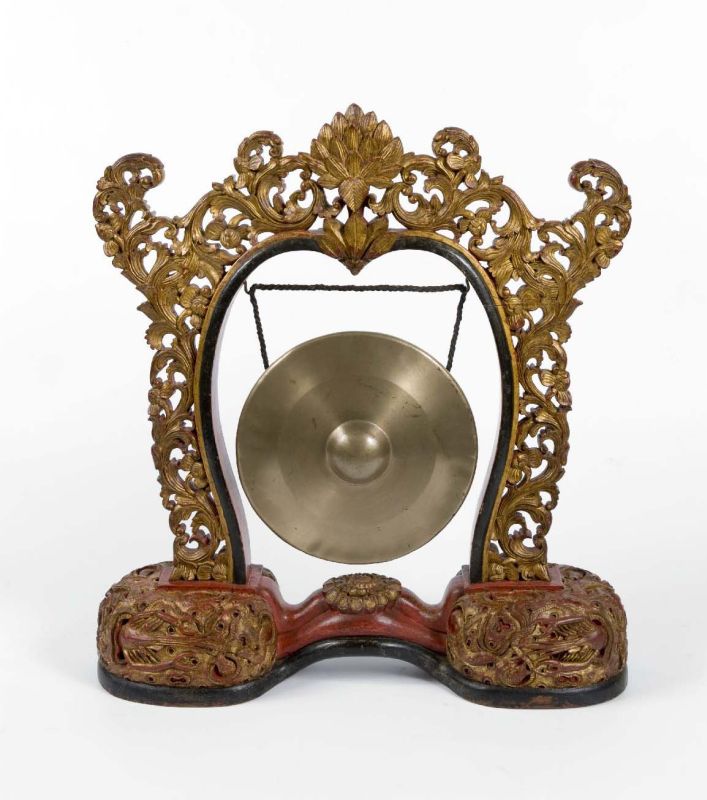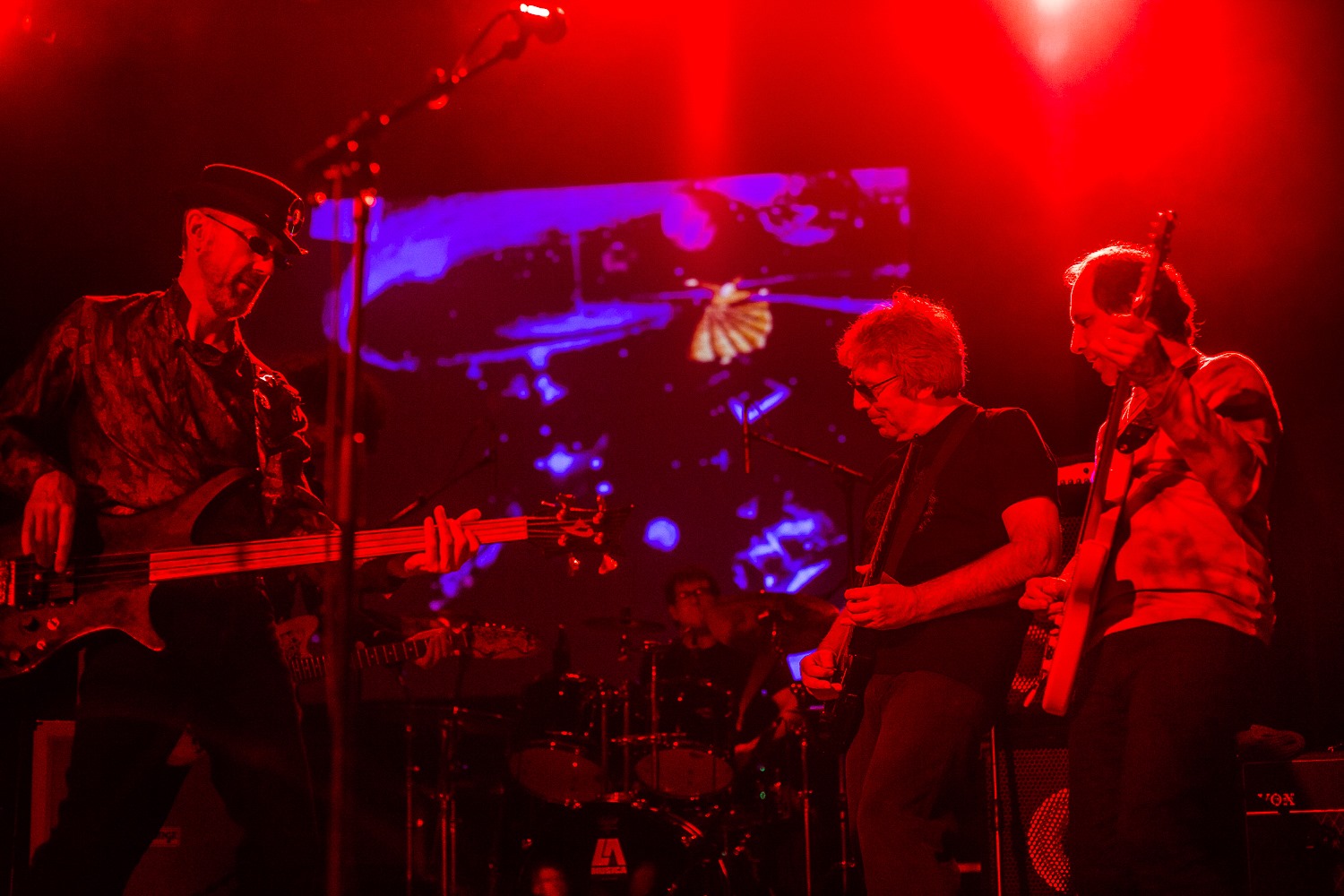|
Shapeshifter (Gong Album)
''Shapeshifter'' is the ninth studio album released under the name Gong and the sixth album by the Daevid Allen version of the group. It was released in 1992. It is the first proper album from Daevid Allen's Gong since ''You'' from 1974. It is the first album from the original group without founding member Gilli Smyth. Didier Malherbe and Allen are the only two returning performers from the previous album. Pip Pyle, who performed on ''Continental Circus'' and ''Camembert Electrique'' also returns. With main character Zero the hero, the album continues the Gong mythology, the central part of which was formed with the Radio Gnome Trilogy of albums,Shapeshifter' at the Gong website www.planetgong.co.uk. Retrieved 2010-11-28. comprising Flying Teapot in 1973, followed by Angel's Egg, 1973, and You in 1974. Releases Over the years since 1992, there have been different releases of the album with different numbers of tracks. On "the original as it was planned", the Gong website list ... [...More Info...] [...Related Items...] OR: [Wikipedia] [Google] [Baidu] |
Gong (band)
Gong are a progressive rock band that incorporates elements of jazz and space rock into their musical style. The group was formed in Paris in 1967 by Australian musician Daevid Allen and English vocalist Gilli Smyth. Band members have included Didier Malherbe, Pip Pyle, Steve Hillage, Mike Howlett, Pierre Moerlen, Bill Laswell and Theo Travis. Others who have played on stage with Gong include Don Cherry, Chris Cutler, Bill Bruford, Brian Davison, Dave Stewart and Tatsuya Yoshida. Gong's 1970 debut album, ''Magick Brother'', featured a psychedelic pop sound. By the following year, the second album, ''Camembert Electrique'', featured the more psychedelic rock/space rock sound with which they would be most associated. Between 1973 and 1974, Gong released their best known work, the allegorical ''Radio Gnome Invisible'' trilogy, describing the adventures of Zero the Hero, the Good Witch Yoni and the Pot Head Pixies from the Planet Gong. In 1975, Allen and Smyth left the band, whi ... [...More Info...] [...Related Items...] OR: [Wikipedia] [Google] [Baidu] |
Flying Teapot (album)
''Flying Teapot'' is the third studio album by the progressive rock band Gong, originally released by Virgin Records in May 1973. It was the second entry in the Virgin catalogue (V2002) and was released on the same day as the first, Mike Oldfield's Tubular Bells (V2001). It was re-issued in 1977, with different cover art, by BYG Actuel in France and Japan. Recorded at Virgin's Manor Studios, in Oxfordshire, England, it was produced by Giorgio Gomelsky and engineered by "Simon Sandwitch 2 aided by Tom Zen" (Simon Heyworth and Tom Newman). Subtitled ''Radio Gnome Invisible, Part 1'', it is the first of the ''Radio Gnome Invisible'' trilogy of albums, followed by ''Angel's Egg'' in December and '' You'' the following October. This trilogy forms a central part of the Gong mythology. The Flying Teapot idea itself was influenced by Russell's teapot. It was the first Gong album to feature English guitarist Steve Hillage, although he contributed relatively little as he arrived late in t ... [...More Info...] [...Related Items...] OR: [Wikipedia] [Google] [Baidu] |
Space Rock Albums
Space is the boundless three-dimensional extent in which objects and events have relative position and direction. In classical physics, physical space is often conceived in three linear dimensions, although modern physicists usually consider it, with time, to be part of a boundless four-dimensional continuum known as spacetime. The concept of space is considered to be of fundamental importance to an understanding of the physical universe. However, disagreement continues between philosophers over whether it is itself an entity, a relationship between entities, or part of a conceptual framework. Debates concerning the nature, essence and the mode of existence of space date back to antiquity; namely, to treatises like the ''Timaeus'' of Plato, or Socrates in his reflections on what the Greeks called ''khôra'' (i.e. "space"), or in the ''Physics'' of Aristotle (Book IV, Delta) in the definition of ''topos'' (i.e. place), or in the later "geometrical conception of place" as "space ... [...More Info...] [...Related Items...] OR: [Wikipedia] [Google] [Baidu] |
Post-punk Albums By British Artists
Post-punk (originally called new musick) is a broad genre of punk music that emerged in the late 1970s as musicians departed from punk's traditional elements and raw simplicity, instead adopting a variety of avant-garde sensibilities and non-rock influences. Inspired by punk's energy and DIY ethic but determined to break from rock cliches, artists experimented with styles like funk, electronic music, jazz, and dance music; the production techniques of dub and disco; and ideas from art and politics, including critical theory, modernist art, cinema and literature. These communities produced independent record labels, visual art, multimedia performances and fanzines. The early post-punk vanguard was represented by groups including Siouxsie and the Banshees, Wire, Public Image Ltd, the Pop Group, Cabaret Voltaire, Magazine, Pere Ubu, Joy Division, Talking Heads, Devo, Gang of Four, the Slits, the Cure, and the Fall. The movement was closely related to the development of anc ... [...More Info...] [...Related Items...] OR: [Wikipedia] [Google] [Baidu] |
Gong (band) Albums
A gongFrom Indonesian and ms, gong; jv, ꦒꦺꦴꦁ ; zh, c=鑼, p=luó; ja, , dora; km, គង ; th, ฆ้อง ; vi, cồng chiêng; as, কাঁহ is a percussion instrument originating in East Asia and Southeast Asia. Gongs are a flat, circular metal disc that is typically struck with a mallet. They can be small or large in size, and tuned or can require tuning. The earliest mention of gongs can be found in sixth century Chinese records, which mentioned the instrument to have come from a country between Tibet and Burma. The term ''gong'' ( jv, ꦒꦺꦴꦁ) originated in the Indonesian island of Java. Scientific and archaeological research has established that Burma, China, Java and Annam were the four main gong manufacturing centres of the ancient world. The gong found its way into the Western World in the 18th century, when it was also used in the percussion section of a Western-style symphony orchestra. A form of bronze cauldron gong known as a resting b ... [...More Info...] [...Related Items...] OR: [Wikipedia] [Google] [Baidu] |
Concept Albums
A concept album is an album whose tracks hold a larger purpose or meaning collectively than they do individually. This is typically achieved through a single central narrative or theme, which can be instrumental, compositional, or lyrical. Sometimes the term is applied to albums considered to be of "uniform excellence" rather than an LP with an explicit musical or lyrical motif. There is no consensus among music critics as to the specific criteria for what a "concept album" is. The format originates with folk singer Woody Guthrie's ''Dust Bowl Ballads'' (1940) and was subsequently popularized by traditional pop/jazz singer Frank Sinatra's 1940s–50s string of albums, although the term is more often associated with rock music. In the 1960s several well-regarded concept albums were released by various rock bands, which eventually led to the invention of progressive rock and rock opera. Since then, many concept albums have been released across numerous musical genres. Definiti ... [...More Info...] [...Related Items...] OR: [Wikipedia] [Google] [Baidu] |
1992 Albums
Year 199 ( CXCIX) was a common year starting on Monday (link will display the full calendar) of the Julian calendar. At the time, it was sometimes known as year 952 ''Ab urbe condita''. The denomination 199 for this year has been used since the early medieval period, when the Anno Domini calendar era became the prevalent method in Europe for naming years. Events By place Roman Empire * Mesopotamia is partitioned into two Roman provinces divided by the Euphrates, Mesopotamia and Osroene. * Emperor Septimius Severus lays siege to the city-state Hatra in Central-Mesopotamia, but fails to capture the city despite breaching the walls. * Two new legions, I Parthica and III Parthica, are formed as a permanent garrison. China * Battle of Yijing: Chinese warlord Yuan Shao defeats Gongsun Zan. Korea * Geodeung succeeds Suro of Geumgwan Gaya, as king of the Korean kingdom of Gaya (traditional date). By topic Religion * Pope Zephyrinus succeeds Pope Victor I, as th ... [...More Info...] [...Related Items...] OR: [Wikipedia] [Google] [Baidu] |
Mike Howlett
Michael John Gilmour Howlett (born 27 April 1950) is a record producer and teacher based in the United Kingdom and Australia. Career In the late 1960s, Howlett was the bassist in Sydney pop band the Affair, which included vocalist Kerrie Biddell. The group travelled to England after winning a prize in the Hoadley's Battle of the Sounds band competition. Howlett settled in London and in 1973 joined renowned British progressive rock group Gong, which had been founded by an Australian expatriate, Daevid Allen. He remained with Gong until 1977, recording several albums with them and co-writing much of their material later in this period with drummer Pierre Moerlen. After leaving Gong, Howlett formed the short-lived band Strontium 90, which consisted of himself, Sting, Stewart Copeland and Andy Summers. In addition to being the band's lead bassist and chief songwriter, Howlett performed most of the lead vocals in live performances. The band recorded several demos and played at a Par ... [...More Info...] [...Related Items...] OR: [Wikipedia] [Google] [Baidu] |
Graham Clark (violinist)
Graham Leslie Lionel Clark (born 16 December 1959) is an English jazz violinist based in Buxton, Derbyshire. He also plays electric guitar. A freelance violinist in most styles of jazz, rock, blues and pop, he specialises in improvisation. He worked with Daevid Allen from 1988 to 2014: *August 1988 – October 1989: with the Invisible Opera Company of Tibet *October 1989 – December 1991: with Gongmaison *February 1992 – December 1992: with Magick Brothers / Gong *December 1996 – 2014: with Magick Brothers He has also worked with Andy Sheppard, Keith Tippett, Tim Richards, Phil Lee, Paz, Brian Godding, Elbow, Lamb, Bryan Glancy, Little Sparrow, Jah Wobble, Graham Massey, Louis Gordon and Liz Fletcher. Notable performances * "Flocking", 2007, a collaboration between Clark's improvising string quartet and four singers. * World premiere of two suites by Jean-Claude Vannier, October, 2006 at the Barbican, London: featured soloist with BBC Concert Orchestra. * BBC Radio 3 br ... [...More Info...] [...Related Items...] OR: [Wikipedia] [Google] [Baidu] |
Steve Hillage
Stephen Simpson Hillage (born 2 August 1951) is an English musician, best known as a guitarist. He is associated with the Canterbury scene and has worked in experimental domains since the late 1960s. Besides his solo sound recording and reproduction, recordings he has been a member of Khan (band), Khan, Gong (band), Gong and System 7 (band), System 7. History Bands 1968–75 Hillage was born in Chingford, which was then in Essex but is now part of Greater London. Whilst still at school, he joined his first band, a blues rock band called Uriel (band), Uriel, with Dave Stewart (keyboardist), Dave Stewart, Mont Campbell and Clive Brooks. The band split up in 1968 with the other members going on to form Egg (band), Egg, but they briefly re-united under assumed names to record the album ''Arzachel (band), Arzachel'' in 1969. Hillage also guested on Egg's 1974 album ''The Civil Surface''. In 1969, Hillage began studies at the University of Kent in Canterbury, befriending local bands ... [...More Info...] [...Related Items...] OR: [Wikipedia] [Google] [Baidu] |
Allmusic
AllMusic (previously known as All Music Guide and AMG) is an American online music database. It catalogs more than three million album entries and 30 million tracks, as well as information on musicians and bands. Initiated in 1991, the database was first made available on the Internet in 1994. AllMusic is owned by RhythmOne. History AllMusic was launched as ''All Music Guide'' by Michael Erlewine, a "compulsive archivist, noted astrologer, Buddhist scholar and musician". He became interested in using computers for his astrological work in the mid-1970s and founded a software company, Matrix, in 1977. In the early 1990s, as CDs replaced LPs as the dominant format for recorded music, Erlewine purchased what he thought was a CD of early recordings by Little Richard. After buying it he discovered it was a "flaccid latter-day rehash". Frustrated with the labeling, he researched using metadata to create a music guide. In 1990, in Big Rapids, Michigan, he founded ''All Music Guide' ... [...More Info...] [...Related Items...] OR: [Wikipedia] [Google] [Baidu] |




